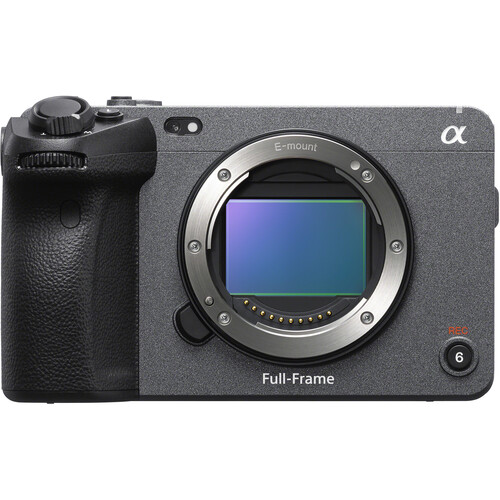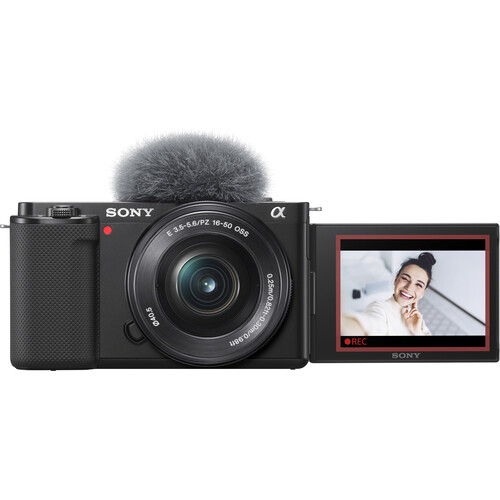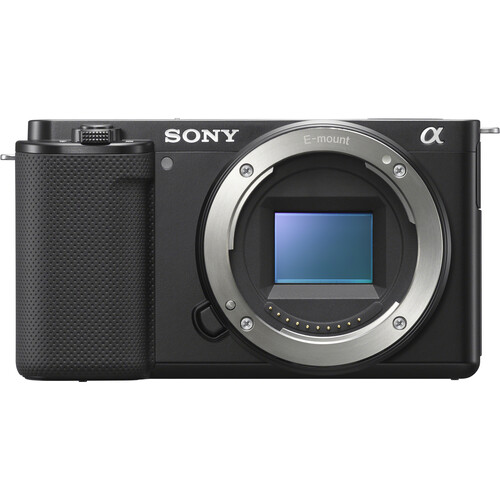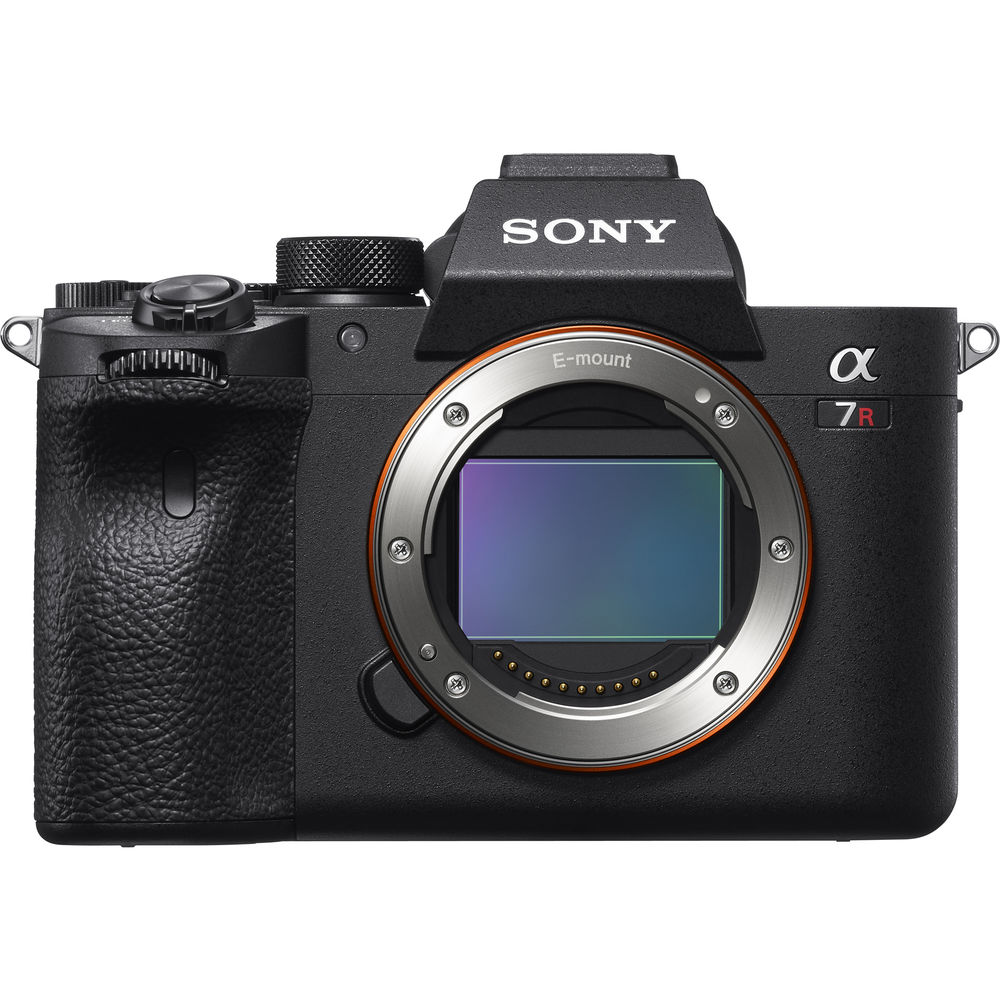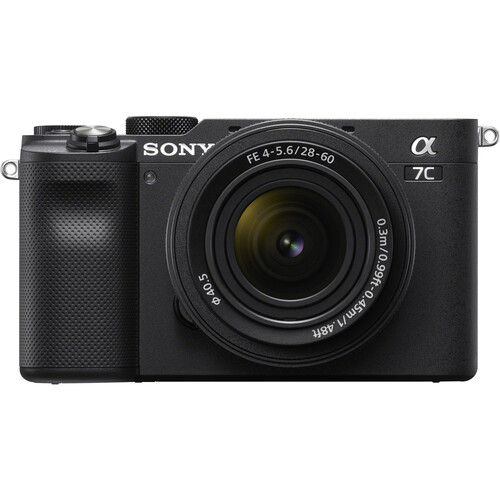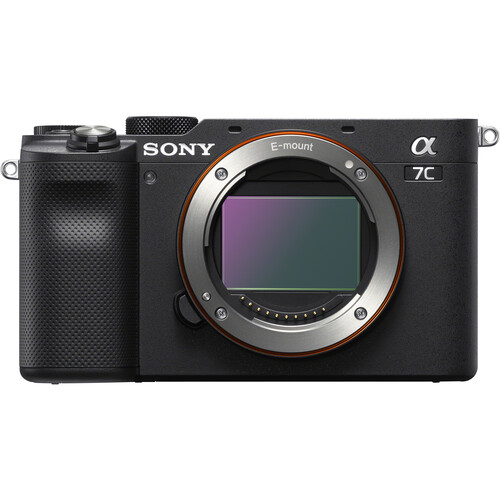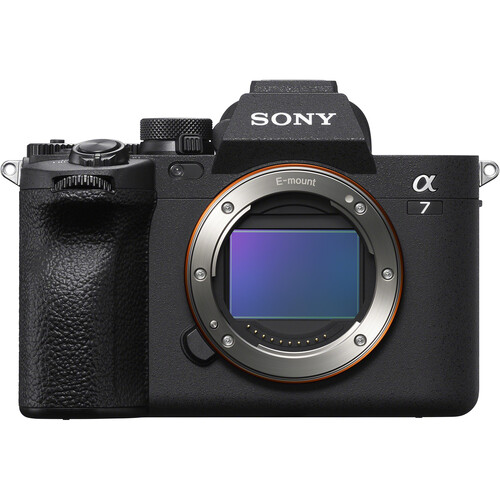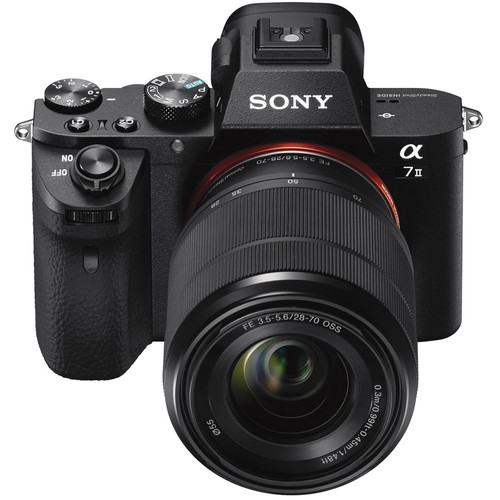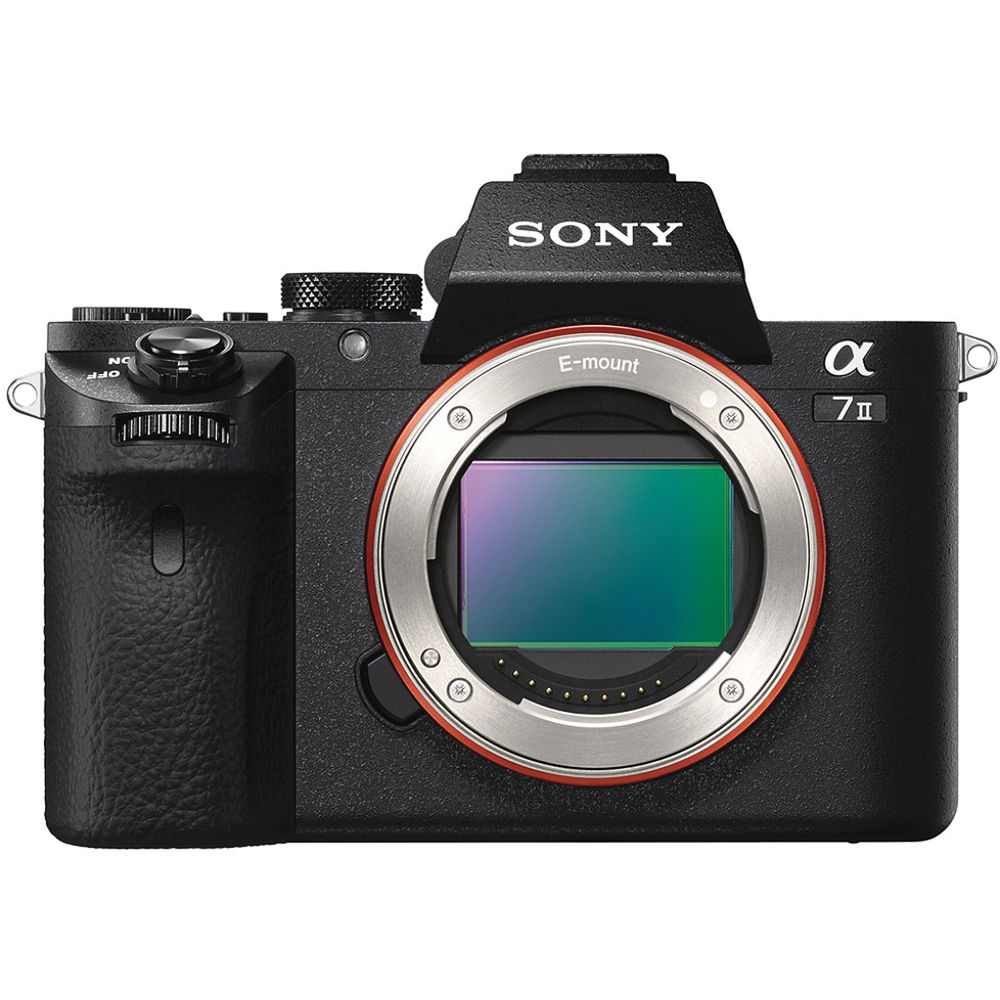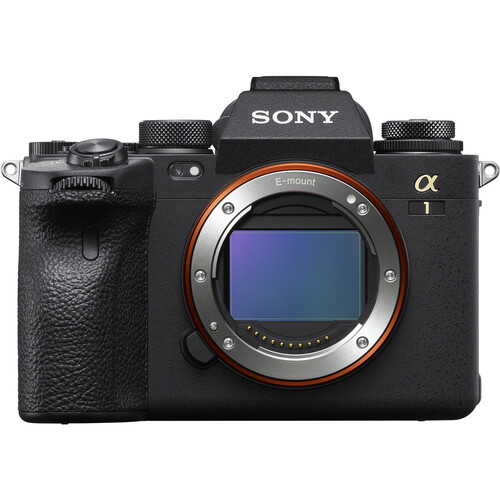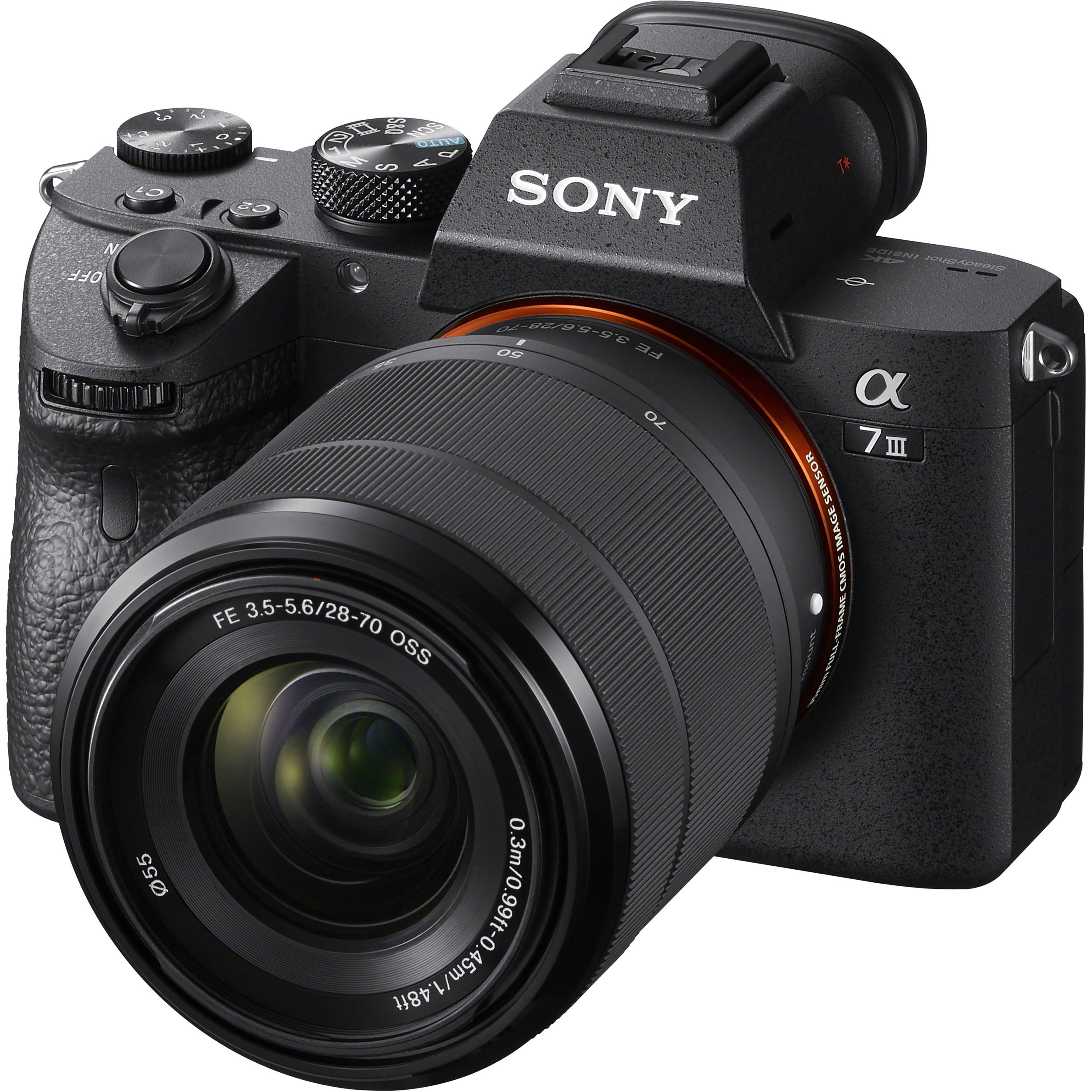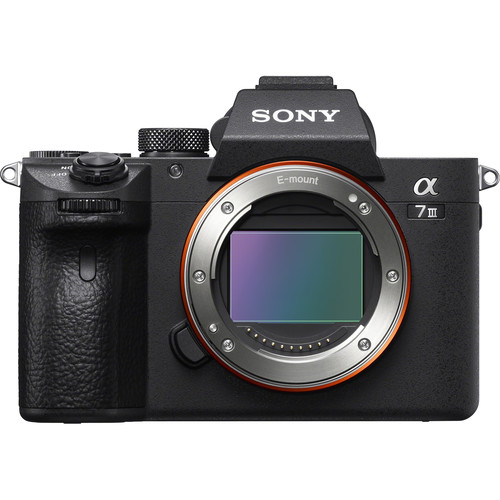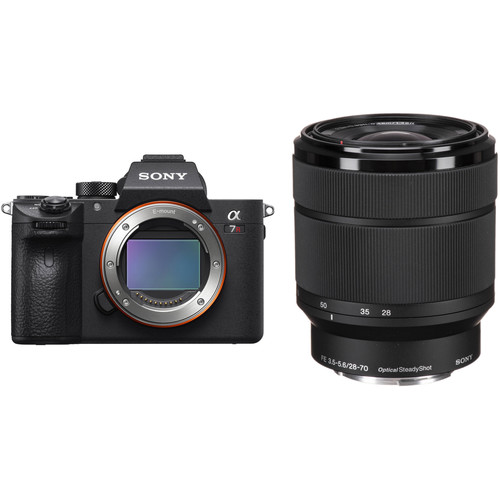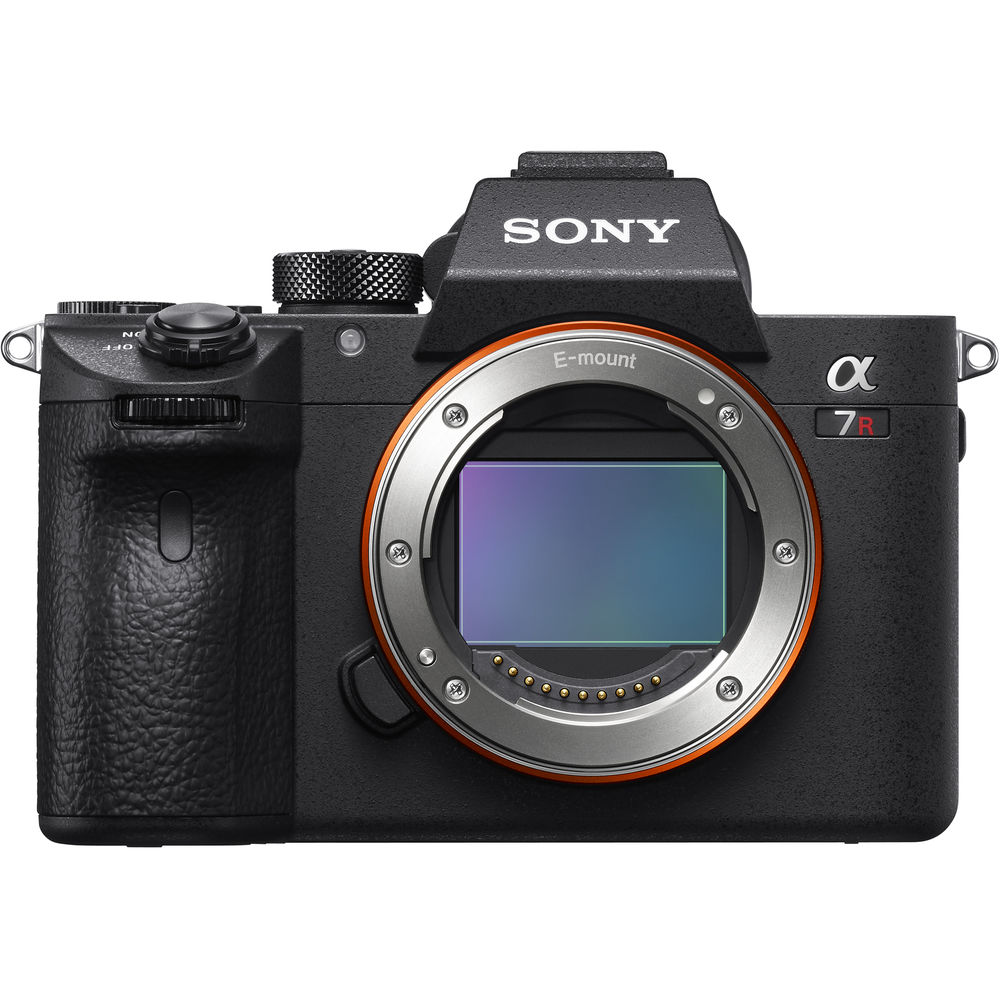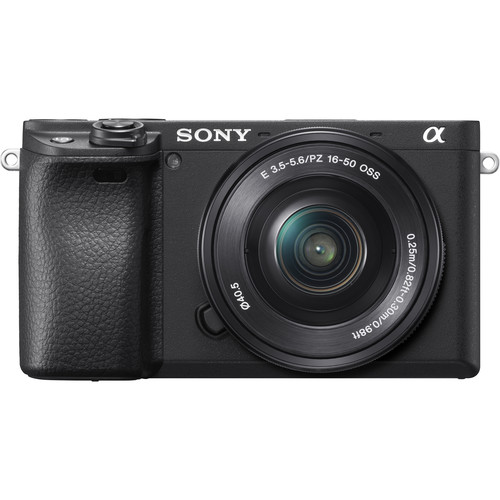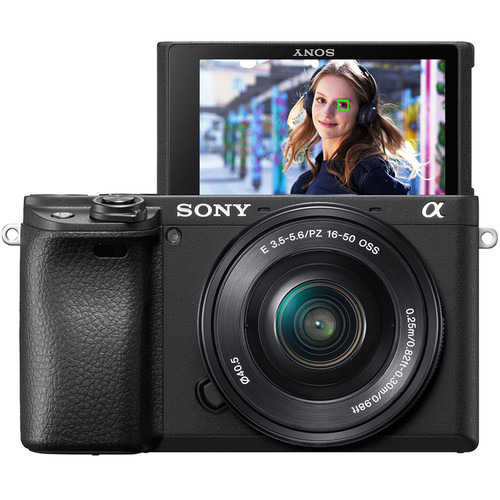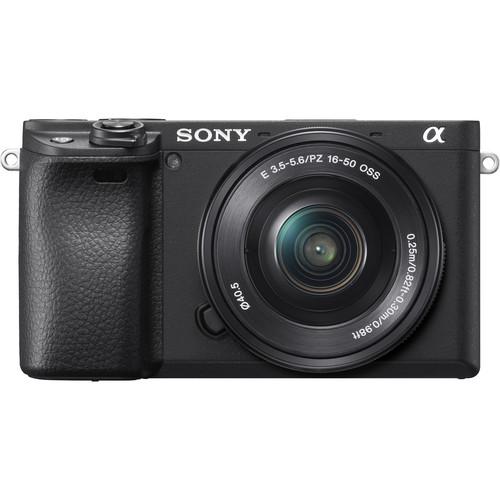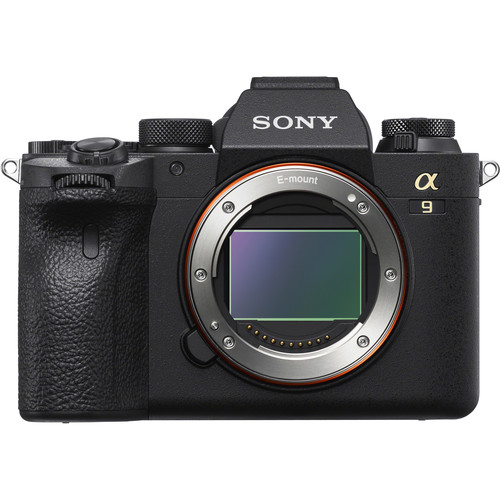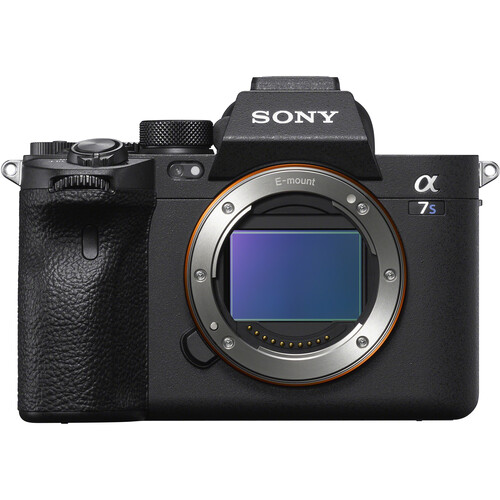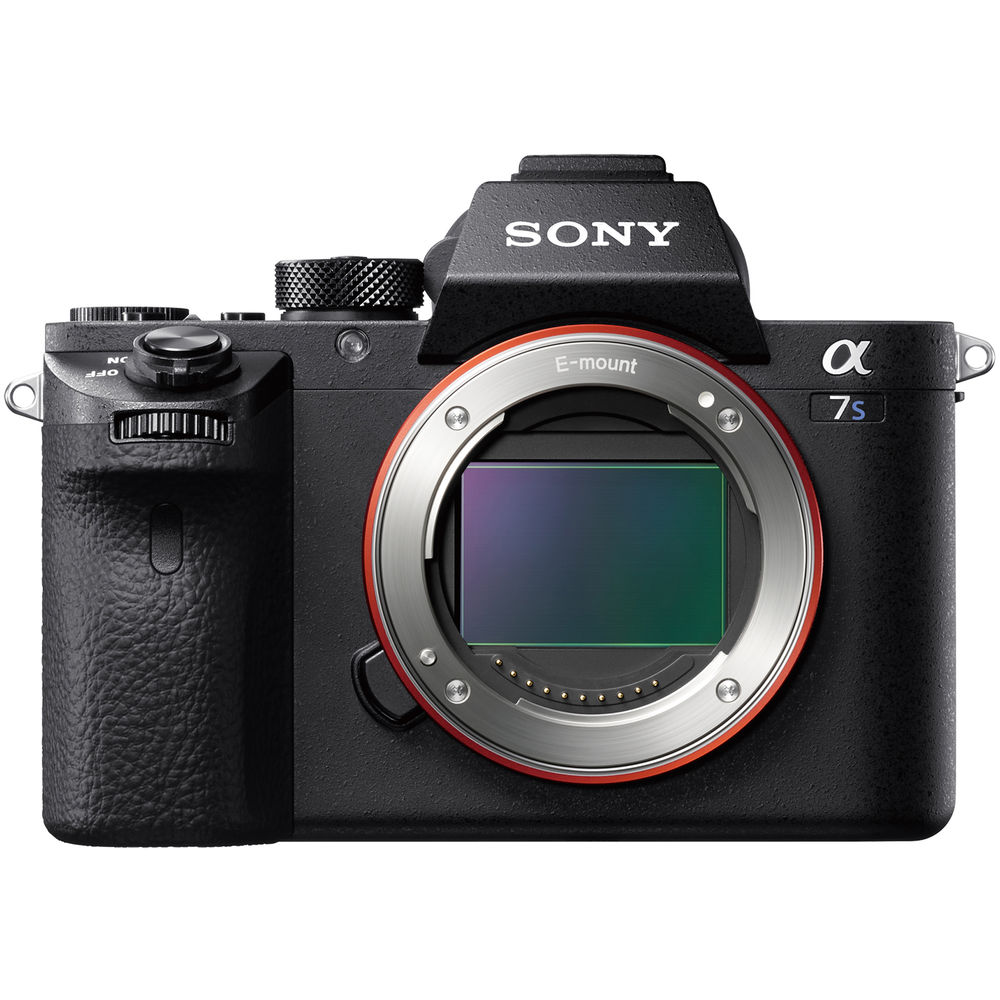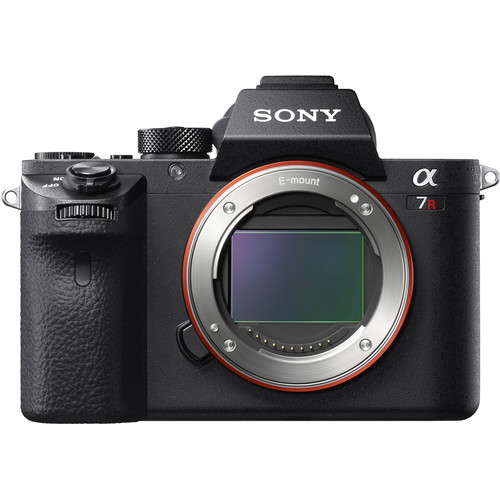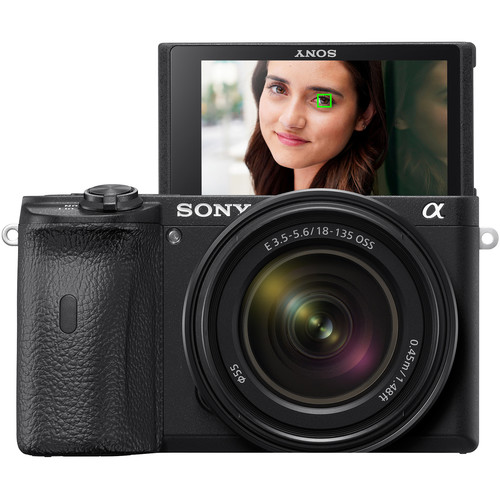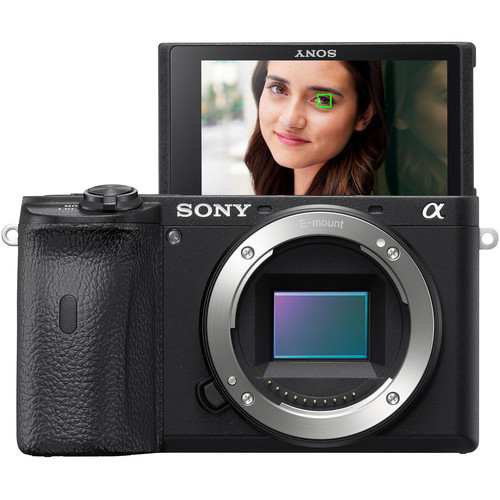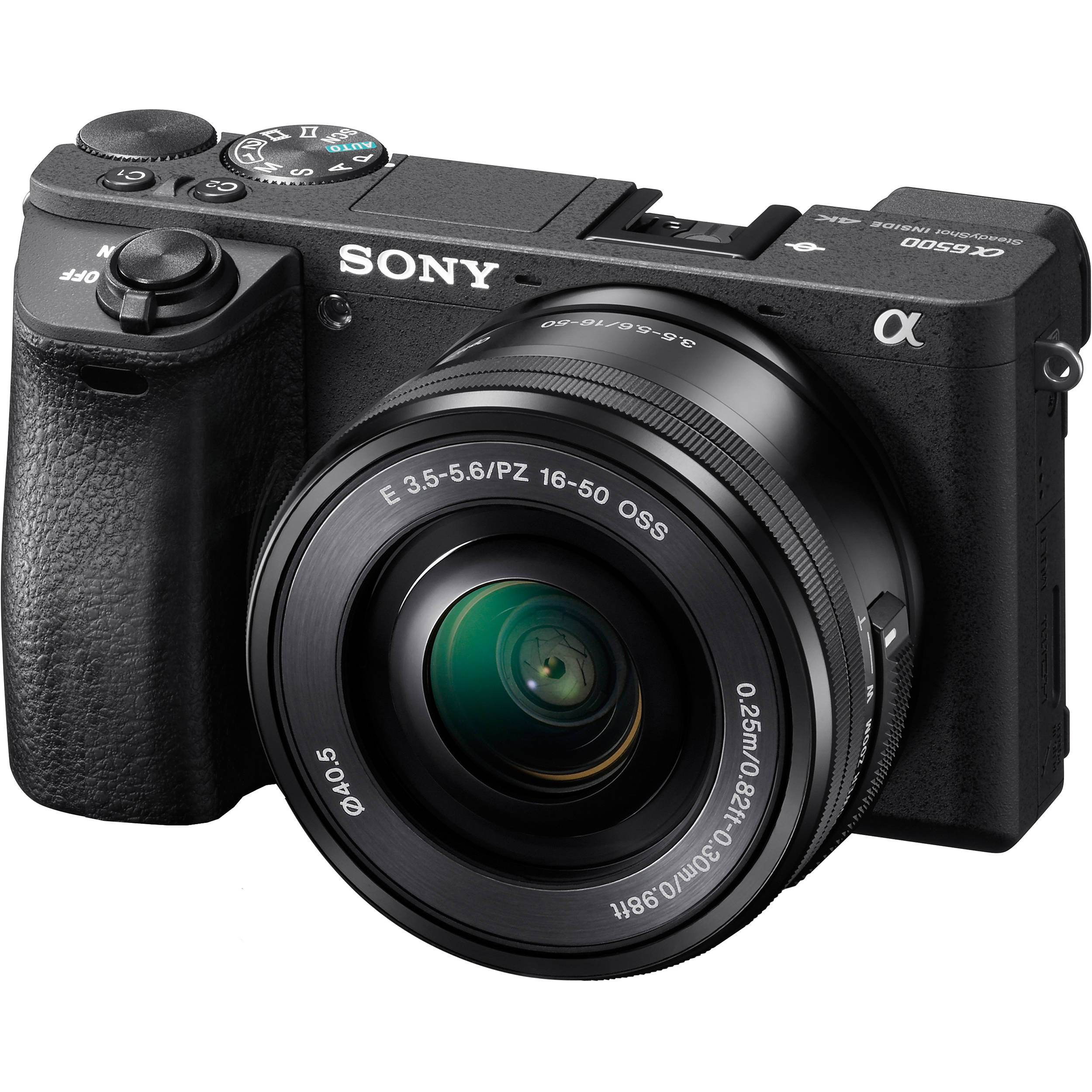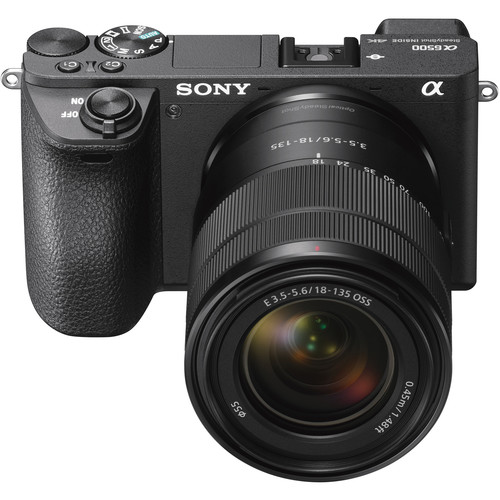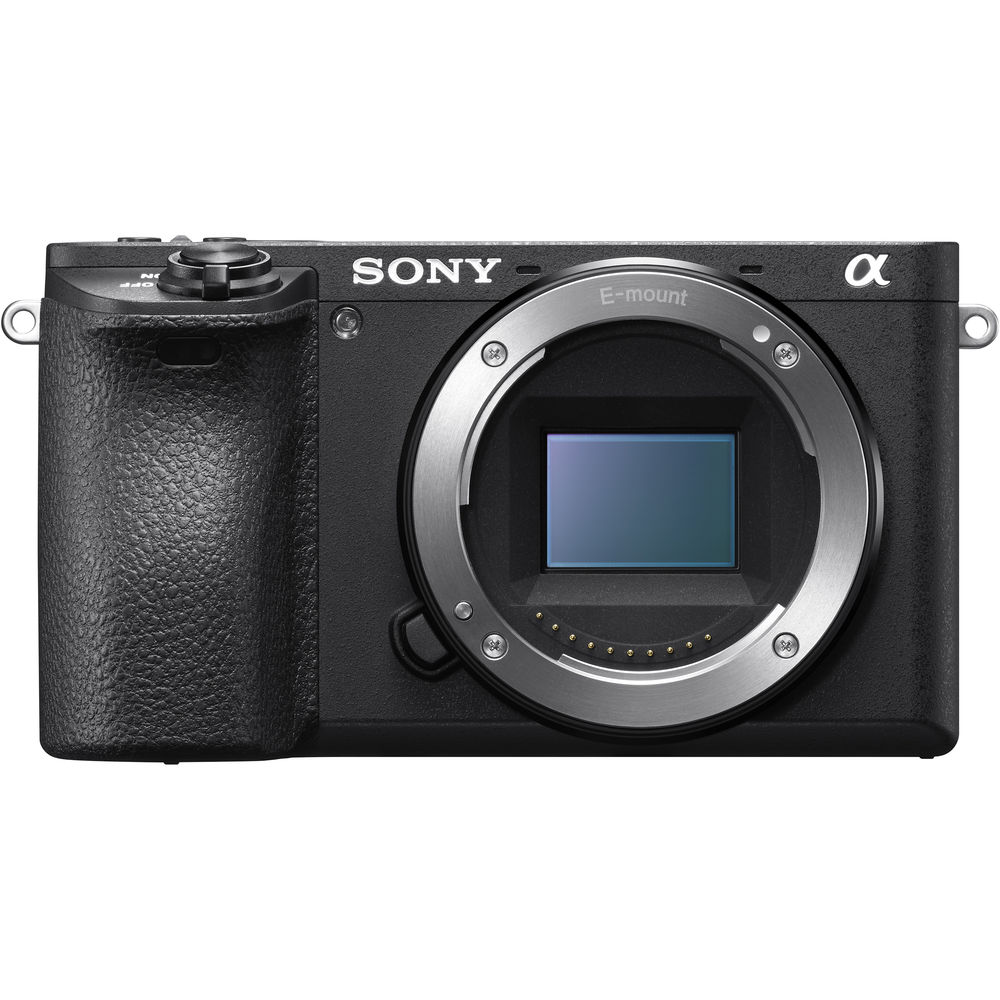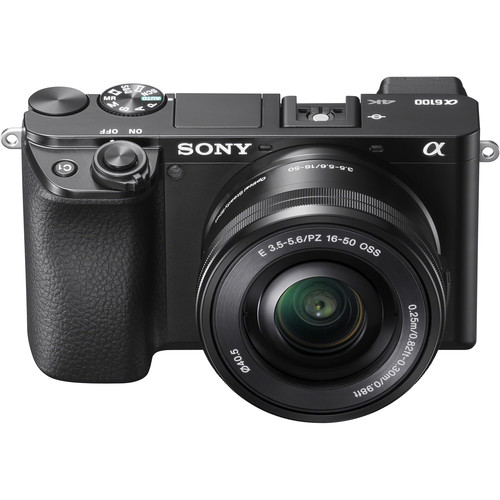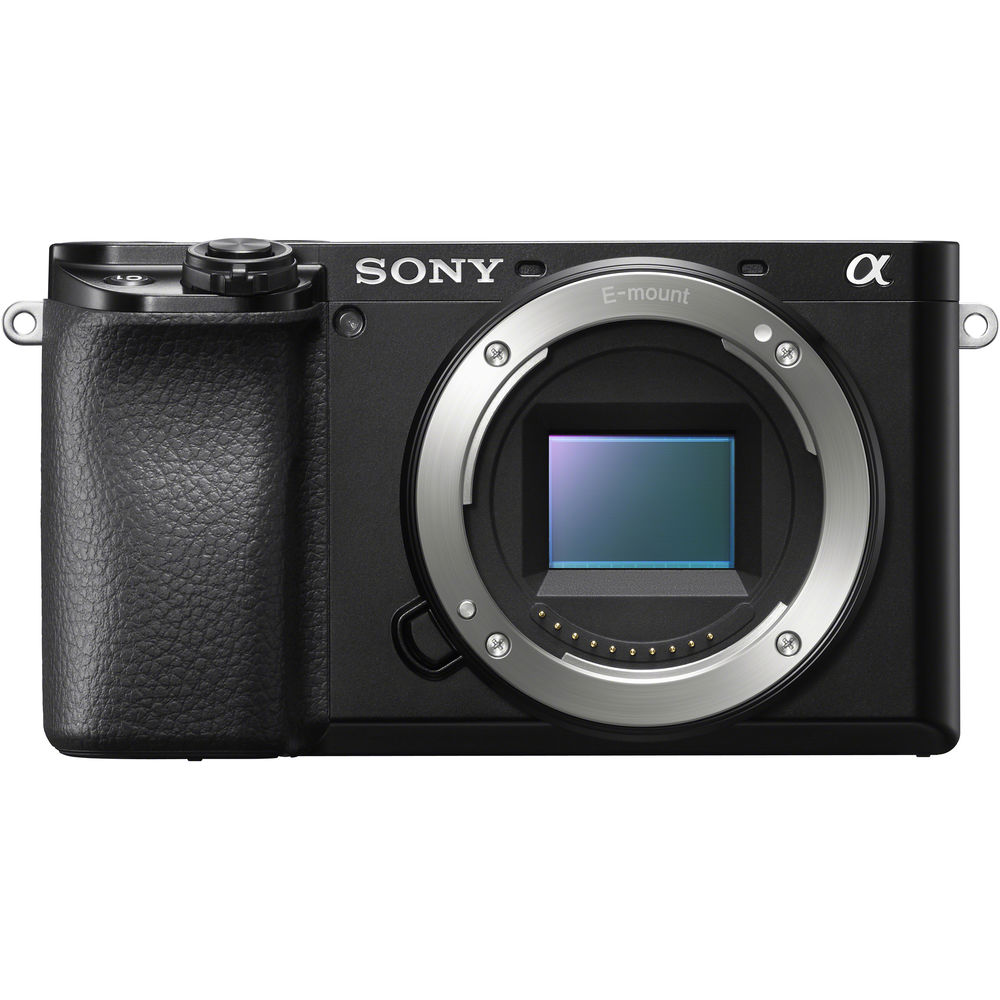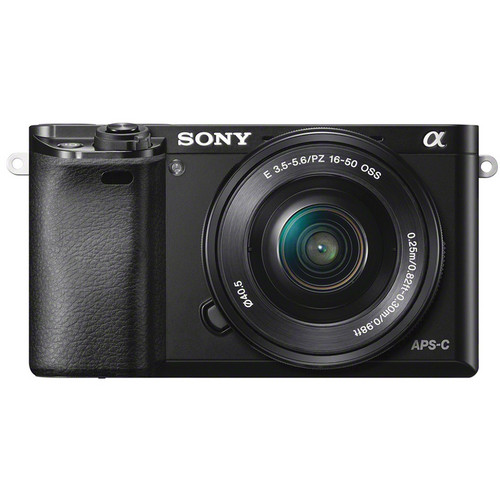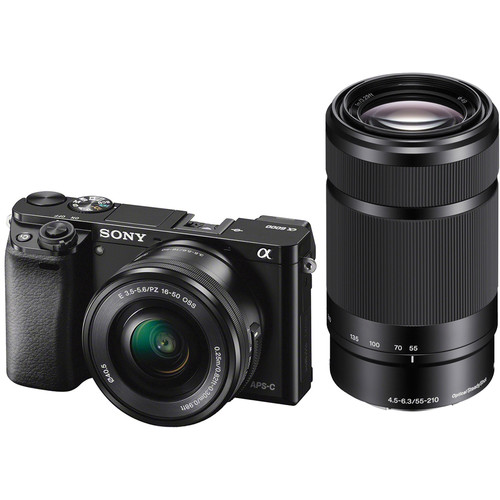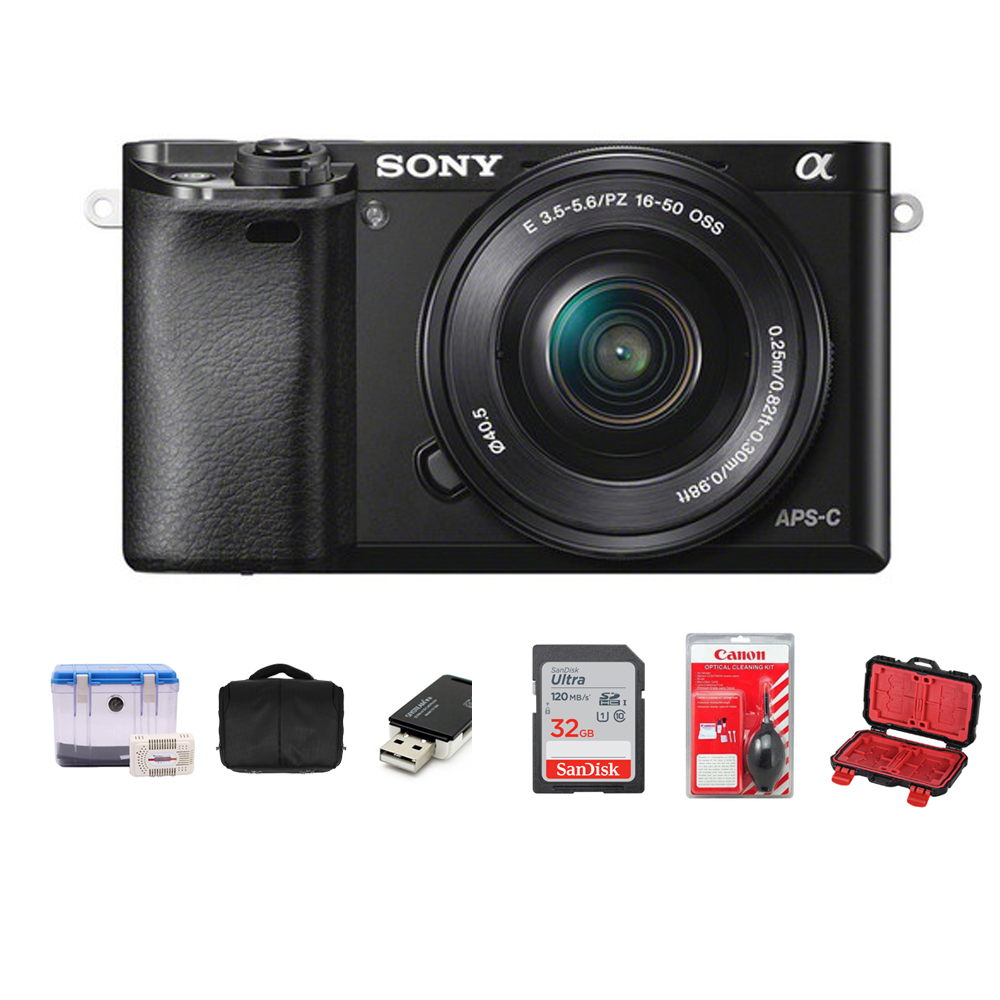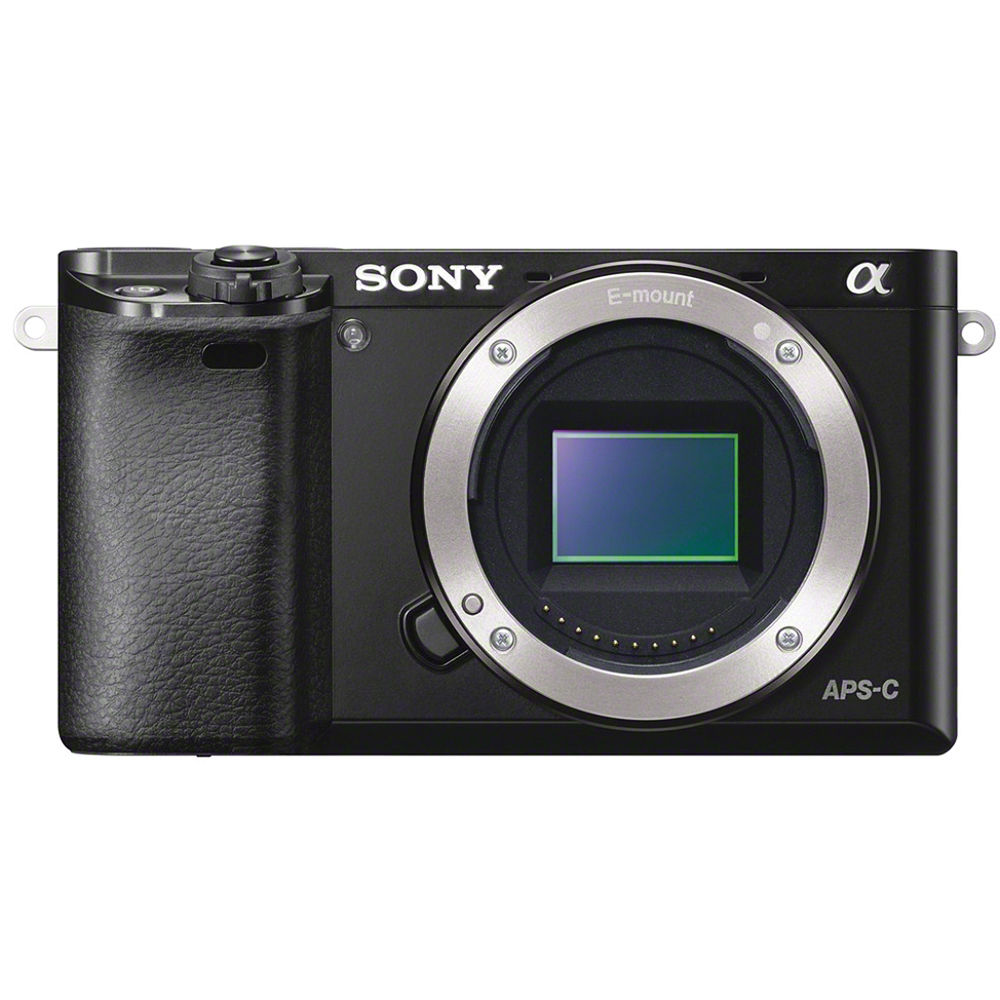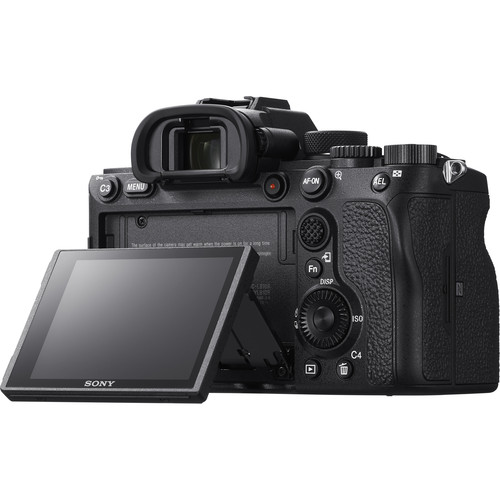
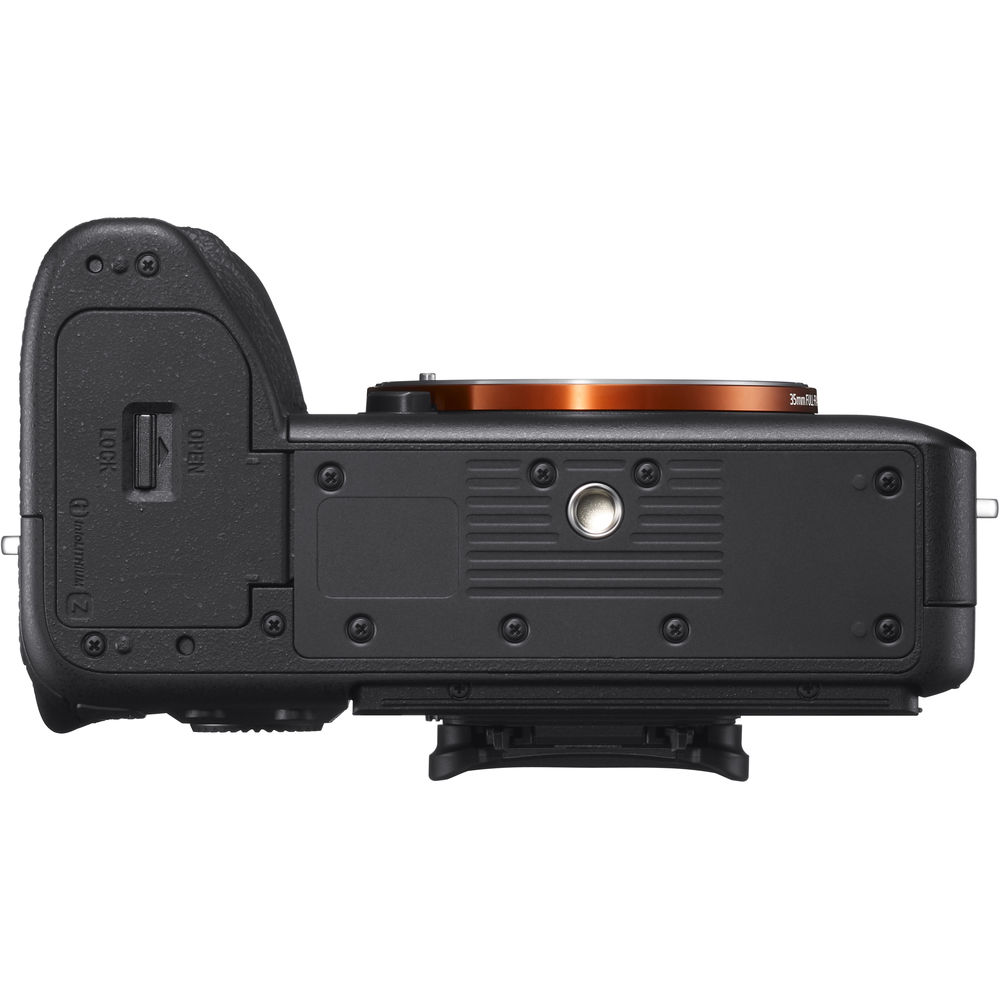
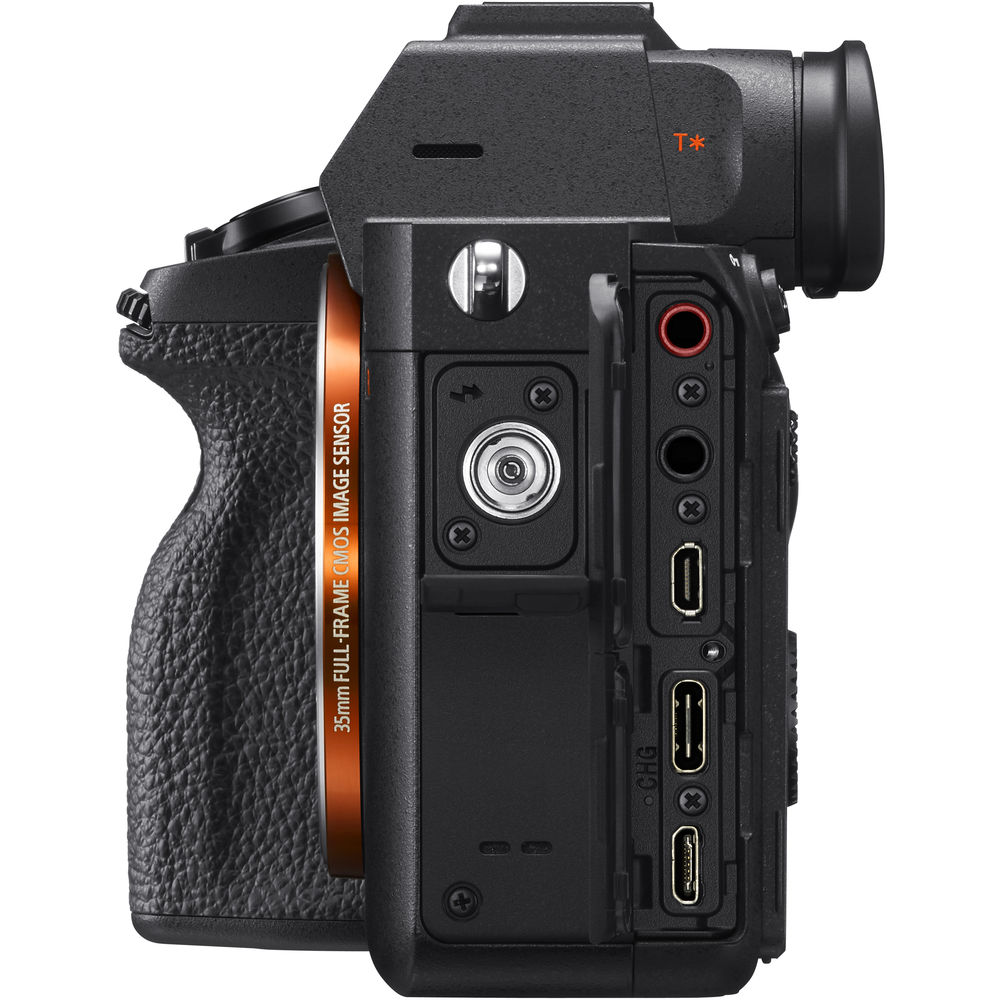
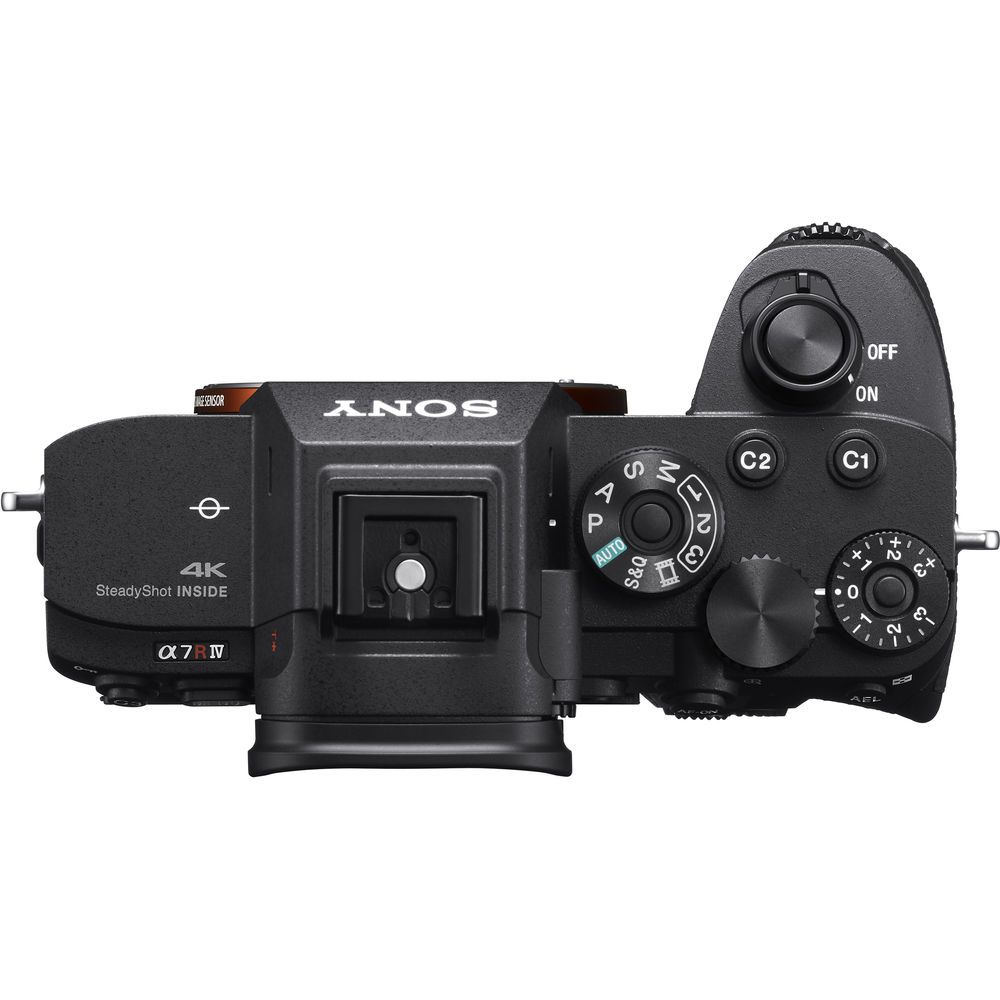
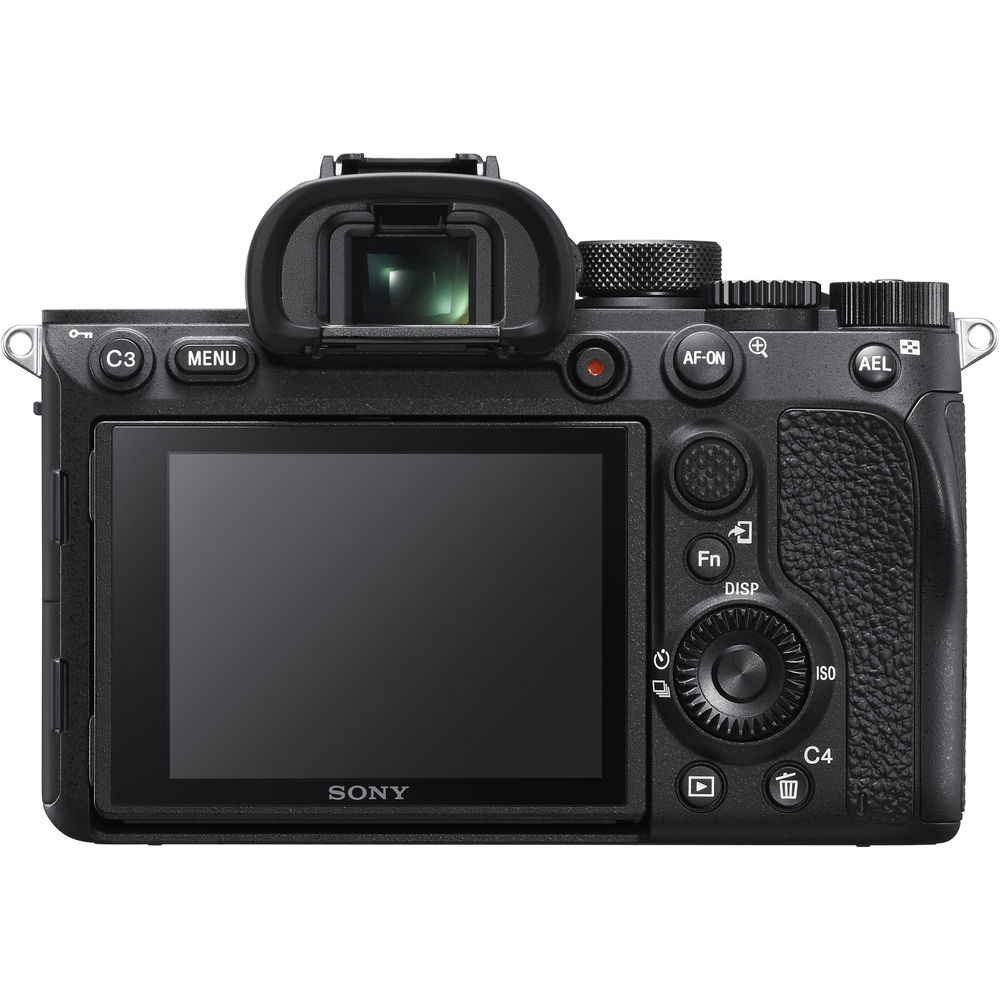
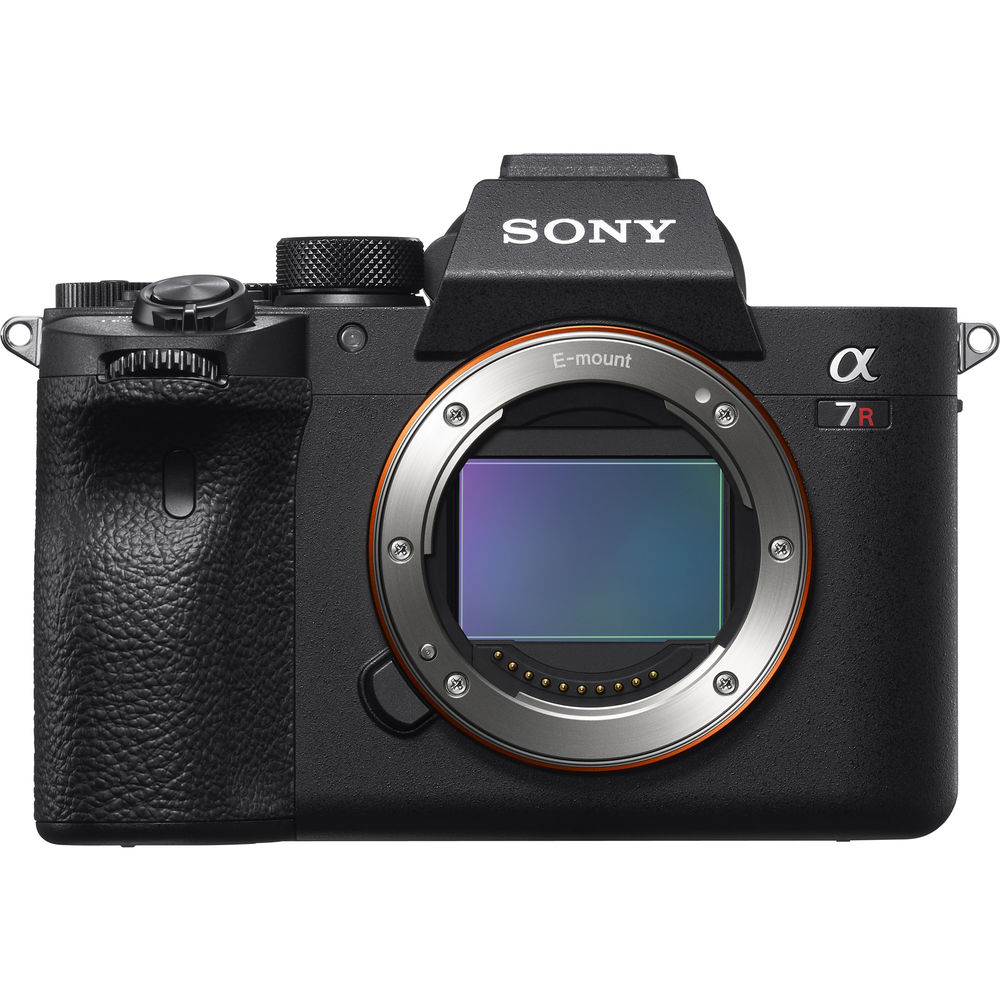
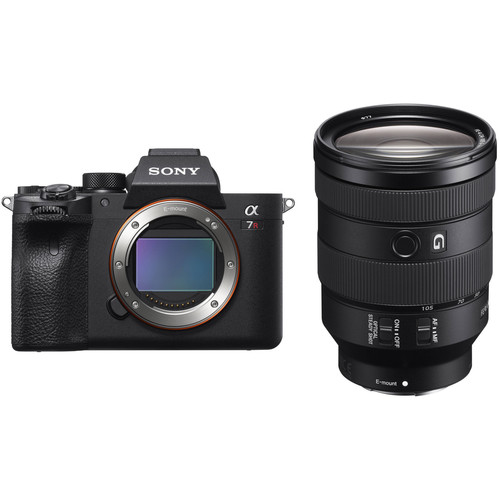
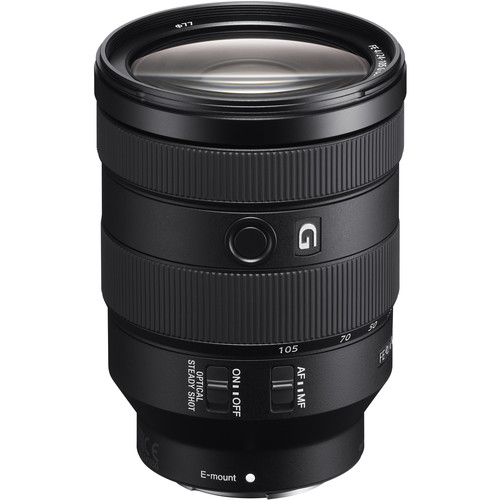
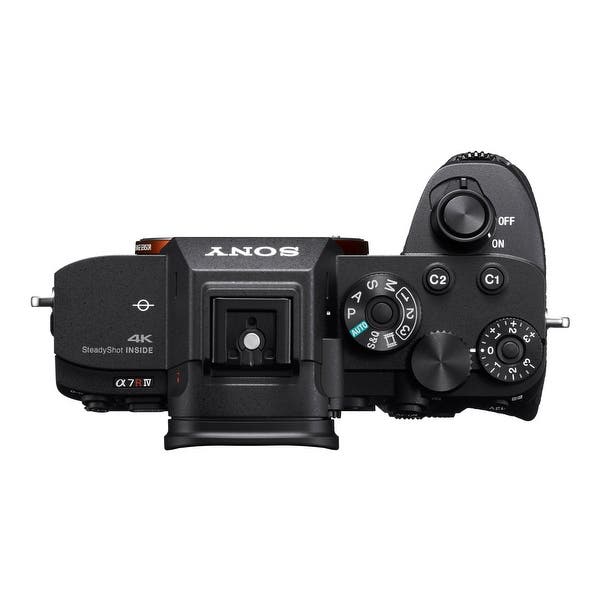









Sony Alpha a7R IV Mirrorless Digital Camera with 24-105mm Lens
Cameras
Key Features
- 61MP Full-Frame Exmor R BSI CMOS Sensor
- BIONZ X Image Processor & Front-End LSI
- UHD 4K30p Video with HLG & S-Log3 Gammas
- 567-Point Phase-Detection AF System
Overview
Moving to an even higher resolution realm, the Sony Alpha a7R IV continues the noteworthy series of highly capable full-frame cameras, characterized by impressive stills and video performance and versatility. This fourth edition of the a7R sees the inclusion of an updated 61MP Exmor R BSI CMOS sensor and enhanced BIONZ X image processor, which afford impressive imaging results with marked smoothness, a 15-stop dynamic range, and, of course, speed. Up to 10 fps shooting is possible along with the ability to record UHD 4K30 video, both with support for Real-time Eye AF and Tracking AF technologies. The revised sensor design uses a Fast Hybrid AF System, with 567 phase-detection autofocus points, for notably fast and accurate focusing performance. Despite being such a high-resolution sensor, it is also distinguished by its flexible native sensitivity range from ISO 100-32000 for working in a variety of lighting conditions. Additionally, benefitting both stills and video operation, the a7R IV retains the 5-axis SteadyShot INSIDE sensor-shift image stabilization, which is effective to minimize the appearance of camera shake by up to 5.5 stops.
Balancing the imaging merits, the a7R IV also sees an updated physical design with more robust weather sealing to suit working in especially harsh weather conditions. In terms of usability, the OLED electronic viewfinder has been boosted to an impressive 5.76m-dot resolution for clear viewing and the 3.0" rear tilting touchscreen LCD has a high 1.44m-dot resolution for crisp playback, live view shooting, and menu navigation. Dual SD card slots are both UHS-II-rated for faster performance and the inclusion of a USB Type-C port permits tethering and quick in-camera battery charging. Additionally, built-in Bluetooth and both 2.4 and 5 GHz Wi-Fi bands afford wireless transferring and remote camera control from linked mobile devices.
Dedicated Accessories from Sony
Complementing the camera body is a trio of accessories to increase battery life and enhance audio recording capabilities when shooting video. The VG-C4EM Vertical Grip is the dedicated battery grip, which accepts up to two more NP-FZ100 batteries for extended shooting times. Its ergonomic design also enhances handling when shooting in the vertical orientation.
For improved audio recording, and making use of the a7R IV's updated Multi Interface Shoe and digital audio interface, there is the ECM-B1M Shotgun Microphone, which delivers a digital audio stream directly to the camera for cleaner quality with low noise. For even more advanced audio control, there is also the XLR-K3M XLR Adapter Kit, which is a dual-channel digital XLR audio adapter for connecting external microphones to the camera while still benefitting from the digital audio interface.
61MP Exmor R BSI CMOS Sensor and BIONZ X Image Processor
Featuring a back-illuminated design, the full-frame 61MP Exmor R CMOS sensor works with the BIONZ X image processor to offer impressively high-resolution stills and video while minimizing noise, improving speed, and achieving a wide 15-stop dynamic range. This sensor structure works with gapless on-chip lens design and an anti-reflection coating, as well as eliminating the optical low-pass filter, to improve light collection and enhance detail. Also, the copper wiring layer dramatically improves data transmission speed for creating 14-bit, high-resolution 61MP stills with a native sensitivity range from ISO 100-32000, which can be further expanded to ISO 50-102400. Also, it enables internal UHD 4K video recording with a wide 14-stop dynamic range using either the full width of the full-frame sensor or an APS-C-sized area. The BIONZ X processor also works in conjunction with a high-speed front-end LSI to realize faster processing times along with the ability to capture this impressive 15-stop dynamic range with smooth tonal rendering.
The sensor and processor combination also avails fast continuous shooting at up to 10 fps at full resolution, for up to 68 consecutive frames, with full-time AF/AE.
Fast Hybrid AF System
An updated Fast Hybrid AF system now employs a combination of 567 phase-detection points, which cover approximately 99.7% of the height and 74% of the width of the frame, along with 425 contrast-detection areas for reliable and quick autofocus and subject tracking performance. This focusing system also achieves especially quick speed and reliable tracking, as well as enhanced low-light focusing response down to -3 EV. The use of phase-detection points also enables the use of A-mount lenses via the optional LA-EA3 or LA-EA1 lens mount adapters with full continuous AF/AE tracking compatibility.
The apt focus system also lends itself to a variety of focusing functions for refined accuracy, including Lock-on AF, which maintains focus on moving subjects throughout the use of a configurable frame that is set over the desired moving subject, and Expand Flexible Spot, which employs neighboring focus points to retain focus on moving subjects even if the originally selected point loses focus. Additionally, Eye AF can be used to base focus on recognized human subjects' eyes for portraits and is available in both AF-S and AF-C modes, for both stills and video. Eye AF can be used when photographing animal subjects, too, with any focusing mode when shooting stills. Autofocus can also be used in conjunction with the Focus Magnifier function for critical focus when homing in on minute subject details. The rear touchscreen can also be used for Touch Focus control, and a Touchpad Focus Control mode lets you use the rear screen intuitively while keeping your eye to the viewfinder.
Body Design and Built-In Wi-Fi/Bluetooth
- An updated UXGA OLED Tru-Finder EVF is featured and has a 5.76m-dot resolution for bright, clear viewing in rich detail, and a dedicated High quality setting enables a 120 fps refresh rate for especially smooth playback of moving subjects.
- In addition to the EVF, a 3.0" 1.44m-dot rear LCD is also available, which has a touch panel design for intuitive operation and focusing control. The screen also tilts upward 107° and downward 41° to benefit working from high and low angles.
- Magnesium alloy chassis assures rigidity, durability, and stability while remaining lightweight. The lens mount has also been improved to better support heavy lenses and the grip rigidity has been improved for more comfortable hand-holding.
- Extensive weather-sealing, including enhanced sealing around the battery cover, terminal cover, and chassis joints, has been employed to resist dust and moisture for reliable operation in harsh weather conditions.
- Using the same NP-FZ100 battery as its predecessor, the a7R IV's battery life is rated for approximately 530 shots per charge with the EVF or 670 shots with the rear LCD.
- Dual SD memory card slots allow for flexible file saving and handling and can be configured to partition raw and JPEG files or can be used for overflow recording. Both of the card slots are rated to support UHS-II memory cards for faster transfer speeds.
- Integrated PC sync terminal for wired flash sync with strobe packs or wireless radio remotes.
- A USB 3.2 Gen 1 Type-C port has been added, in addition to a micro-USB port, for faster, more reliable tethering support. The USB Type-C connection allows the camera to be charged from the host power source while connected.
- Updated Multi Interface Shoe supports working with the optional ECM-B1M Shotgun Microphone or XLR-K3M XLR Adapter Kit, which provide improved, clear audio recording sound by sending a digital audio signal to the camera, opposed to an analog signal.
- The a7R IV also features a 3.5mm microphone input jack for compatibility with external microphones.
- Built-in Wi-Fi enables the a7R IV to instantly share imagery to mobile devices for direct sharing online to social networking, via email, and to cloud storage sites. Support for both 2.4 and 5.0 GHz bands also enables wireless tethered shooting support. NFC (Near Field Communication) is also supported, which allows for one-touch connection between the camera and compatible mobile devices; no complex set-up is required. Once connected, the linked mobile device can also display a live view image on its screen and remotely control the camera's shutter.
- Bluetooth connectivity allows for location data acquisition.
5-Axis SteadyShot INSIDE Image Stabilization
Packed into the robust a7R IV is a 5.5-stop effective 5-axis SteadyShot INSIDE image stabilization system that compensates for five different types of camera shake encountered during handheld shooting of stills and video. This allows users to confidently use any lens, even adapted lenses, for critical imaging without encountering blur from camera shake.
For long focal lengths, the system will correct for pitch and yaw adjustments. Macro and high-magnification imagery, on the other hand, will benefit from the inclusion of horizontal and vertical shift compensation. All shooting styles will get usage out of the roll compensation. All 5 axes of stabilization will function at all times, even when used with third-party lenses and adapters or lenses with built-in optical stabilization.
Pixel Shift Multi Shooting
This unique compositing mode allows you to achieve even greater resolution than the 61MP sensor affords. Working in conjunction with the sensor-shift image stabilization, this mode shifts the sensor while making 16 consecutive exposures in order to acquire approximately 240.8MP of information for greater color accuracy and detail than possible with a single exposure, along with an impressive image size of 19,008 x 12,672-pixels. These files can then be merged together during post-production by using the Sony Imaging software suite.
UHD 4K Video Recording in XAVC S Format
Internal recording of UHD 4K movies is possible in multiple frame rates up to 30 fps and, based on the Super35mm recording area and effective 6K resolution, oversampling renders greater detail and full pixel readout is possible, that is void of pixel binning, for higher quality imagery with reduced moiré and aliasing. Full-frame 4K recording has also been dramatically improved for improved quality when working at mid to high sensitivities to permit full use of the entire sensor width. Full HD 1080p recording is also supported in frame rates up to 120 fps, and both resolutions utilize the 100 Mbps XAVC S format contained within an MP4 wrapper with 4:2:0 sampling. The high-speed, 120 fps recording also enables 4x and 5x slow-motion movie recording with the frame rate set to either 30p or 24p. In addition to high-resolution internal recording, uncompressed HDMI output also enables the use of an optional external recorder for clean 4K recording with 4:2:2 sampling.
4K video recording also avails the ability to produce 8MP stills during playback by taking a frame grab from a movie and storing it as a separate file.
Additional Video Features
Support for HDR Content:
- Affording extensive customizable color and gamma controls, the a7R IV allows users to adjust the gamma, black level, knee, color level, and more. Also, users can use the same S-Log2 Gamma Curve that is found on high-end Sony Cinema cameras that squeezes up to 1300% more dynamic range into the video signal then traditional REC709, for increased post-production flexibility. HLG (Hybrid Log-Gamma) support is also available, along with the BT.2020 color space, for recording within a wide color gamut and, in addition to S-Log2, S-Log3 is also available for producing an effective 14-stop dynamic range with increased grading control in the shadow to mid-tone regions of the image.
Slow & Quick Motion:
- Take more control over your video capture capabilities with a variety of new frame rates available in an S&Q mode. This will allow shooters to capture Full HD video at one of either steps between 1-120 fps. These settings will allow you to slow down action as well as speed up a slow-moving scene. This setting is also NTSC/PAL switchable.
Enhanced Zebra Function:
- An enhanced Zebra function is ideally suited to aid in monitoring exposure values in high-contrast scenes. Video signal level targets can be set from 0 to 109, and specific ranges can be set to make exposure level adjustments easier.
Time Code and User Bit Settings:
- A time code can be used to record hours, minutes, seconds, frames on image data for more precise editing while the User Bit function can record date, time, and scene number to aid in editing together footage from multiple cameras.
Proxy Recording:
- UHD 4K movies and lower-resolution proxy movies can be simultaneously recorded. The smaller proxy files are ideal for quick previewing or pre-editing that can reduce the time required for final 4K editing.
Other Camera Features
- A Ratings function lets you assign star values, from 1-5, to images in-camera for faster editing and sorting at home during post-production.
- An advanced 1200-zone evaluative exposure metering sensor delivers consistent and accurate results using multi-segment, center-weighted, or spot metering modes.
- Highlight and Average metering modes helps avoid blown-out highlights and provide stable auto-exposure, respectively.
- Anti-flicker shooting automatically recognizes and times the shutter action to minimize the flicker effect for more consistent results on still images.
- Picture Effect modes: Posterization (Color), Posterization (B/W), Pop Color, Retro Photo, Partial Color (R/G/B/Y), High Contrast Monochrome, Toy Camera (Normal/Cool/Warm/Green/Magenta), and Soft High-Key.
- Creative Style modes: Standard, Vivid, Neutral, Clear, Deep, Light, Portrait, Landscape, Sunset, Night Scene, Autumn leaves, Black & White, Sepia, Style Box (1-6), (Contrast (-3 to +3 steps), Saturation (-3 to +3 steps), Sharpness (-3 to +3 steps).


